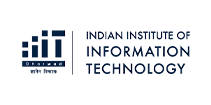Best Engineering Colleges in India: Government & Private Institutes, Fees, and Career Scope
In India, engineering is one of the most popular choices for a career, for a good reason, as it provides plenty of career opportunities, competitive salary packages, and the chance to work with the new and upcoming technology. But, with countless possibilities, it can be overwhelming to navigate the college choice process.From state-provided colleges to private colleges, India is home to many distinguished engineering colleges that suit a range of budgets, career aspirations, and learning preferences. Government engineering colleges, on the other hand, are particularly popular because of the affordable fees, academic standing and high level of future placement.
This blog will provide you with the necessary information of some of the best engineering colleges in India, including ranking, admissions process, fee structure and career opportunities. Besides, this blog will help you in the college choice process whether you are preparing for your entrance exams or are at the prep stages of college searching.
Top Government Engineering Colleges in India: Fees, Admission, Seat Intake, Eligibility, Entrance Exams
If you're seeking a top-tier engineering school without the excessive costs, then government engineering colleges can be a suitable option. They offer quality education, well-experienced faculty, and they have good connectivity with industries that a student would want; therefore, government engineering colleges are a solid choice for those below or above a certain budget while still pursuing excellence in their engineering school.Why Choose Government College?
Government colleges are the most preferred choice for students aiming to pursue their career in engineering. The number of facilities that a government engineering institution provides are the reasons making them the suitable and favourable choice of the students. Here are some of the many reasons why learners choose a government college as opposed to a private college:
- Lower Fees: Compared to private colleges, a government college would offer much lower tuition rates and with scholarships and waivers, the opportunity for affordability could be beneficial!
- Strong Placements: Most government colleges have ties to its local companies so students are placed in the larger zealous companies with a generous salary package.
- Quality Faculty & Research Facilities: Government colleges invest heavily in labs and research centers and faculty training so students are fully immersed in their learning experience.
- AICTE & UGC Approved: The majority of government colleges are either AICTE accredited (All India Council for Technical Education) or recognized as having the number one tag in most educational bodies.
How to Gain Admission? Eligibility & Admission
Procedure of getting admission into a governmental engineering college is not simple—it requires hard work and good scores in an entrance test. Here are the things you should know:
➢You need to have completed a 10 + 2 (PCM) with a minimum percentage, which varies by college.
➢Admissions will typically rely on an entrance exam from either national or state-level.
➢Reservation quotas will be applicable as directed by the government (as SC/ST/OBC/EWS and PwD categories).
Which Entrance Tests should you crack?
You will need to clear one of the following entrance exams in order to end up in a governmental engineering school of your choice:

➢JEE Main - JEE Main is your access to admission into NITs, IIITs and many other esteemed government schools. This entry test is taken by NTA (National Testing Agency) and is among the most difficult competitive entrance exams to take in India.
➢JEE Advanced - If you want to get admission in any of the IITs, you must qualify this after your JEE Main examination.
➢State-level Exams - Many states have their own entrance exams to select their state engineering colleges. Examples include MHT CET (Maharashtra), WBJEE (West Bengal), KCET (Karnataka), among many others.
Government engineering colleges are an ideal option for the quality education they're known for at an affordable price. If you want to embrace a bright future in engineering, begin your preparations for entrance exams, and ensure you reserve a seat in a top government college in India.Best Engineering Colleges in Different Cities
The city is equally important as the institution when selecting an engineering college. Some cities have better colleges to choose from, along with job opportunities in the same area coupled with industry connectivity, while some provide for students with low income affordability with comforts. Below is a list of some of the best cities in India for engineering education and their best colleges:Top Engineering Colleges in Major Cities
| City | College |
|---|---|
| Delhi-NCR |
Bharati Vidhapeeth’s College of Engineering IIT Delhi NIT Delhi Delhi Technological University (DTU) IIIT Delhi |
| Mumbai |
IIT Bombay ICT Mumbai NMIMS Institute of Chemical Technology (ICT) Sardar Patel Institute of Technology |
| Bangalore |
IISc Bangalore RV College of Engineering BMS College of Engineering Dr. Ambedkar Institute of Technology Government Engineering College |
| Chennai |
IIT Madras Anna University IIITDM Kancheepuram SRM Institute of Science and Technology VIT Chennai |
| Kolkata |
Jadavpur University Maulana Abul Kalam Azad University of Technology (MAKAUT) Institute of Engineering and Management (IEM) BP Poddar Institute of Management and Technology IIEST Shibpur |
| Hyderabad |
IIT Hyderabad IIIT Hyderabad JNTUH Hyderabad Osmania University University of Hyderabad |
| Pune |
MIT Pune College of Engineering, Pune (COEP) Defence Institute of Advanced Technology (DIAT) Dr. D.Y. Patil Institute of Technology (DYPIET) VIT Pune |
Private Engineering Colleges in India
Private engineering institutions are considered to have modern infrastructure, an industry-related curriculum, and excellent placement support. Private colleges may have management quota seats which charge higher fees, but they offer scholarships based on merit as well. Although their fees are generally higher, they offer better campus facilities, entrance options, and international partnerships.
Top Private Engineering Colleges in India
| College | Approx. Annual Fee | Entrance Exam | Average Placement |
|---|---|---|---|
| BITS Pilani | INR 4,00,000 - 5,00,0000 | BITSAT | INR 12,00,000 - 15,00,000 |
| VIT Vellore | INR 1,73,000 - 1,95,000 | VITEEE | INR 7,00,000 - 9,00,000 |
| SRM Institute of Science and Technology | INR 2,50,000 - 5,00,000 | SRMJEEE | INR 5,00,000 - 7,19,000 |
| Amrita Vishwa Vidyapeetham | INR 3,00,000 - 6,00,000 | AEE, JEE Main | INR 6,00,000 - 9,00,000 |
| Manipal Institute of Technology | INR 6,00,000 - 12,00,000 | MET | INR 8,05,000 - 12,85,000 |
| Shiv Nadar University | INR 3,50,000 - 4,00,000 | SNUSAT, JEE Main | INR 6,00,000 - 8,00,000 |
Government Engineering Colleges in India
Government engineering colleges tend to be well-known and reputable, more economical, and have large placement networks. Government colleges typically offer scholarships and reservation quotas based on government guidelines. Government engineering colleges will have a rigid admission process, with most of their seats based on JEE Main, JEE Advanced, or state entrance examinations.Top Government Engineering Colleges in India
| College | Approx. Annual Fee | Entrance Exam | Average Placement |
|---|---|---|---|
| IIT Bombay | INR 2,00,000 - 3,00,000 | JEE Advanced | INR 20,00,000 - 25,00,000 |
| IIT Delhi | INR 2,00,000 - 3,00,000 | JEE Advanced | INR 18,00,000 - 22,00,000 |
| IIT Madras | INR 2,00,000 - 3,00,000 | JEE Advanced | INR 17,00,000 - 20,00,000 |
| NIT Trichy | INR 1,50,000 - 2,00,000 | JEE Main | INR 10,00,000 - 12,00,000 |
| IIIT Hyderabad | INR 2,50,000 - 3,00,000 | JEE Main, SPEC | INR 12,00,000 - 14,00,000 |
| Jadavpur University, Kolkata | INR 10,000 - 50,000 | WBJEE | INR 7,00,000 - 10,00,000 |
| Delhi Technological University | INR 1,50,000 - 2,00,000 | JEE Main | INR 10,00,000 - 12,00,000 |
How to crack entrance exams?
Admission into a prestigious engineering institution involves not only aptitude, but also, a well-conceived strategy, determination, and preparation. Whether working toward the JEE Main, the JEE Advanced, the BITSAT, the VITEEE, or a state-level examination, the manner in which one studies can determine the outcome. Below is a systematic approach for how to succeed on an engineering entrance exam:
1️. Understand the Exam Pattern & Syllabus
- Each exam follows a unique pattern, so the first step is to know what the syllabus is, how marks are awarded, and the level of difficulty on questions.
- The JEE Advanced focusses on conceptual questions and can ask related application-based questions for a given level of difficulty. Whereas, the BITSAT exam focuses on accuracy and quickness under timed conditions.
- Use the syllabus and marking scheme to sort your subjects into high-weightage and low-weightage topics, and then concentrate on high-weightage topics more than low-weightage topics when studying.
- The NCERT books (especially for Physics, Chemistry, and Maths) are the source content for most national-level engineering entrance exams.
- When a student feels comfortable with NCERT sources, reference books can be used and recommended for students to use include:
- Physics: H.C. Verma, I.E. Irodov (for JEE Advanced)
- Chemistry: O.P. Tandon (Physical), M.S. Chouhan (Organic)
- Maths: R.D. Sharma, Cengage, Arihant Series
- Daily routine: Determine whether to study 6-8 hours each day with all subjects represented in someone's schedule.
- Breakdown: 60% of their time will be concerning concepts learned, 30% of their time will be dealing with practice and workshops, 10% of their schedule will review past learned content and gain understanding with revisions.
- Mock tests: Complete mock tests every week to show progress and the person will demonstrate the timing strategies.
- Solve a minimum of 100-150 questions or half questions per day and mix it up, with each the correct answer with each subject.
- Attempting past years papers, as the effectiveness of these combined with the previous point addresses the need to find texts that mirror section standards.
- Full length mock tests will add speed and accuracy to the answer.
- Timing is something that is an existing period from previous tests related to time as relates to JEE and BITSAT around the same reconsidering within the scheduling of JEE related courses concerning timing tasks each for midterm or final for course evaluation.
- Build on the knowledge and techniques to have a response to the issues around timing by:
- Approximation methods to calculate longer pieces of problem than had been used before and thereby would use.
- Short tricks for Mathematics and Physics examples only like direct past standards.
- Create a balanced approach and schedule your days—not just studying 24/7. Make time to take short breaks during each study session, balance studying with exercise, and get enough sleep at night.
- If you get lost, do not be afraid to ask for help. Ask your classmates or teacher for help, join online forums or subject coaching classes, or form a study group with your peers.
- Staying positive and being consistent is more important than being the smartest person in class.
- Focus only on important formulas, reactions, and shortcut tricks.
- Revise your self-made notes instead of picking new study material.
- Solve at least one full-length paper daily in the last 10 days before the exam.
Future Prospects After completing Engineering Program
Finishing an engineering degree unfolds a variety of opportunities! Whether you want to venture in higher studies, specialize in a field of niche interest, or join the job market, there are various options available. Let's discuss them separately:
Higher Education Options
Master’s Degrees- M.Tech/M.E. (Master of Technology/Master of Engineering) – This is a provision for those students who are eager to pursue more advanced studies in engineering and attain more knowledge through specialisation.
- MBA (Master of Business Administration) – If you are someone who wants to gain hands-on experience in management roles but within technology firms or startups then this masters program is for you.
- MS (Master of Science) – Suitable if you are interested in research work, particularly overseas.
- Certification Courses and Specializations
- Data Science and AI: Machine Learning, Deep Learning, Python or AI Certifications
- Cloud Computing: AWS, Google Cloud, Microsoft Azure
- Cyber Security: Ethical Hacking, CISSP, CEH
- Project Management: PMP, Agile, Six Sigma
- Networking and IT: Cisco CCNA, CCNP, Red Hat Linux.
Job Opportunities After Engineering
Engineering opens the door to many different career avenues. If you already enjoy coding, want to develop the next great product, or work on technology for space exploration, and everything in between, engineer trainees usually have access to many facets of jobs when graduating:| Industry | Popular Job Roles | Top Recruiters |
|---|---|---|
| IT & Software | Software Developer, Data Analyst, AI Engineer | Google, Microsoft,TCS, Infosys |
| Core Engineering | Mechanical, Civil, Computer Science or Electrical Engineer | L&T, Tata Steel, Reliance, BHEL |
| Automobile & Robotics | Design or Automation Engineer | Tesla, Ashok Leyland, Mahindra |
| Electronics and Telecom | Embedded System Engineer and IoT Specialist | Qualcomm, Samsung, Nokia |
| Banking and Finance | Quantitative Analyst, FinTech Developer | JP Morgan, Goldman Sachs, Paytm |
| Consulting | Business Analyst and IT Consultant | Deloitte, McKinsey, Accenture |
| Government Jobs | PSU Engineer, IES Officer | ISRO, DRDO, BHEL, Railways |
Entrepreneurship & Startups
Many engineers start their own businesses instead of taking jobs. If you have a fantastic idea, you can start a startup in:
- Tech & Software Development (e.g., SaaS, AI platforms)
- E-commerce & Product Development
- Renewable Energy & Sustainability
- EdTech & Online Learning Platforms
Government & Public Sector Jobs
If government employment is of interest to you, engineering offers great opportunities in PSUs (Public Sector Undertakings), civil services, and defense. Best exams to pursue:- GATE – For PSU companies like ONGC, BHEL, NTPC, and IOCL.
- IES (Indian Engineering Services) – For engineering posts in railways, defence, and infrastructure.
- ISRO/DRDO Recruitment – If defense and space technology interest you.
- SSC JE, RRB, State PSCs – For engineering-related vacancies in government departments.
Conclusion
Engineering is not just a degree but a pathway to thousands of opportunities. Whether you want to go work for tech companies, blue chip companies, startups, or anything in between, an engineering degree gives you the problem solving skills that are valuable everywhere. If technology and innovation excite you, you can study AI, Robotics, Sustainability, Fintech, and many more. If you like managerial positions, you can pursue an MBA after your engineering degree and work in a management role. If you are looking to serve your nation, you can find jobs in PSUs, IES, ISRO, etc.The first job is just the beginning of a long storied career filled with opportunities if you choose the right college, focus on skill building, and be open to this dynamic world of opportunity. Regardless of the future path you choose, engineering is a foundation for endless challenges and opportunities.
Frequently Asked Questions
1. Which entrance exam is best for engineering in India?The most common exams to gain admission to public colleges of engineering are JEE Main and JEE Advanced. There are other exams that are quite popular for private colleges of engineering such as BITSAT, VITEEE or SRMJEEE.
2. What is the average salary of an engineering graduate in India?
The average salary in India will vary primarily on the file itself. A fresh graduate in the IT & Software sector will see an average salary of ₹6-12 LPA while graduates in core engineering roles will see around ₹4-8 LPA. Again graduating from IIT or NIT will usually have better packages on average.
3. Are private engineering colleges worth it?
Yes, private engineering colleges such as BITS Pilani, VIT, Manipal, etc provide excellent placements and visibility to the industry. However it is always useful to check the college's accreditation, tuition fees, and placement record before applying.
4. What are some of the top career options in engineering?
Upon graduating from an engineering college, you have the option of obtaining a job in technical, consulting, finance, manufacturing or research, or pursuing a further degree (M.Tech/MBA) or even becoming an entrepreneur.
5. Is it advisable to get an MBA after an engineering degree?
Absolutely. If you are looking to pursue a career in consulting, management or leadership positions in a business, technology or finance background, an MBA would greatly enhance your future career opportunities.
Trending Posts
-
A Definite Guide in 2025 to Chandigarh University Online (CU Online)
-
15 Top Online MBA Colleges in India in 2025
-
Are Online MBA Degrees Valid in India? All You Need to Know About Them
-
Best Engineering Colleges in India: Government & Private Institutes, Fees, and Career Scope
-
Entrepreneur and Entrepreneurship: Two Sides of the Same Coin?
-
Is an Online MBA from NMIMS CDOE Worth It?
-
Manipal University Jaipur Online: Courses, Admission, and Fees 2025
-
What’s Next After BCA? Top 10 Courses for Career Success in 2025
-
Top 10 Online MBA Specializations in Demand in 2025 and How to Choose?
-
Top 5 Online MCA Colleges in India in 2025
-
Affordable Excellence: Top Online MBA Universities Around 1 Lakh
-
How Much Do BCA Graduates Earn? Salary & Career Path Explained
-
Online Education vs. Distance Education: Benefits and Limitations
-
A Guide on Dual Degrees: Benefits, How to Get, and Institutes Offering Dual Degrees
-
Jain Online University: Courses, Benefits, Fees, Admission Fees






























































